Mobile:+86-311-808-126-83
Email:info@ydcastings.com
Italian
High-Performance Impellers for Water Pumps & Industrial Pumps
Understanding the Critical Role of Industrial Impellers in Fluid Dynamics
In the realm of industrial fluid handling, the impeller stands as an indispensable component, serving as the dynamic heart of centrifugal pumps, compressors, and various fluid moving machinery. Its primary function involves converting rotational energy into kinetic energy within a fluid, thereby generating flow and pressure. The efficiency and reliability of an entire system often hinge on the design, material integrity, and precision manufacturing of this single component. As industries like petrochemicals, metallurgy, and municipal water supply increasingly demand higher performance and greater energy efficiency, the evolution of impeller technology continues to accelerate. Current trends emphasize advanced computational fluid dynamics (CFD) for optimized blade designs, the utilization of exotic alloys for enhanced corrosion and abrasion resistance, and the integration of smart monitoring systems to predict maintenance needs and extend operational lifespans. Furthermore, the global drive towards sustainability mandates impellers that not only deliver superior performance but also significantly reduce energy consumption and operational costs. For instance, in complex pump systems, the interaction between the impeller and other critical components, such as the cap ends and the volute case, is paramount. Optimized geometric compatibility ensures laminar flow, minimizes turbulence, and maximizes hydraulic efficiency, which directly translates into substantial energy savings for end-users operating these systems continuously. The selection of the right impeller for an application is a meticulous process, requiring a deep understanding of fluid properties, system head requirements, and environmental conditions to ensure optimal performance and longevity.
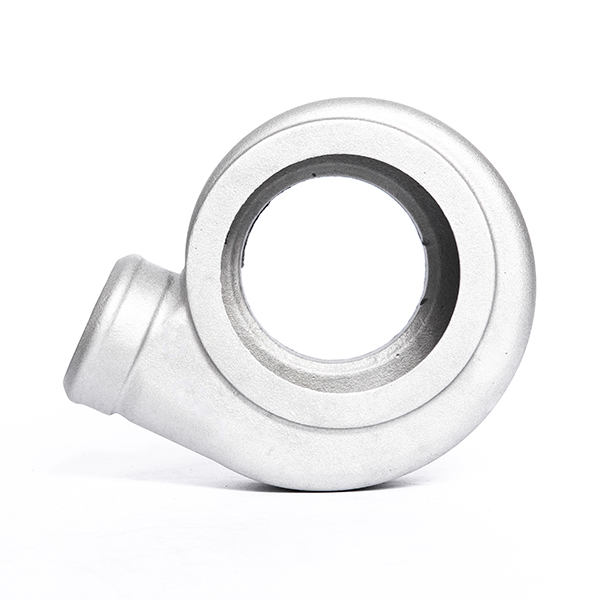
The demand for high-performance impellers is on a steady upward trajectory, driven by infrastructure development in emerging economies and the modernization of industrial facilities worldwide. Specifically, the market for components used in the energy sector, including oil and gas, power generation, and renewable energy, is witnessing robust growth. Here, the operating conditions are often extreme, involving high temperatures, abrasive slurries, or corrosive chemicals, necessitating impellers manufactured from specialized materials such as duplex stainless steels, superalloys like Hastelloy, or even ceramics. These materials are chosen for their superior resistance to wear, cavitation, and chemical degradation, ensuring that the impeller on pump systems can withstand harsh environments and maintain operational integrity over extended periods. Furthermore, the increasing adoption of smart manufacturing and Industry 4.0 principles is influencing the production of impellers. This includes the use of additive manufacturing (3D printing) for rapid prototyping and complex geometries, advanced sensor technologies for real-time monitoring of impeller performance, and predictive analytics to schedule maintenance before critical failures occur. This technological convergence not only enhances product quality and efficiency but also significantly reduces downtime and maintenance costs for industries relying heavily on these fluid-moving systems. The focus remains on developing impellers that offer a compelling balance of hydraulic efficiency, mechanical robustness, and material durability, thereby delivering long-term value and operational reliability across a diverse range of industrial applications.
The Advanced Manufacturing Process of High-Performance Impellers
The production of a high-quality impeller is a complex, multi-stage process that combines advanced metallurgical science with precision engineering. It typically begins with rigorous design and simulation using sophisticated software like CAD/CAM for geometric modeling, and CFD/FEA for hydraulic performance prediction and structural integrity analysis. This initial phase is crucial for optimizing the impeller's efficiency and ensuring it meets specific application requirements, whether it's for a high-head chemical process or a large-volume water pump impeller. Following design, material selection is paramount. Common materials include various grades of stainless steel (e.g., 316L, Duplex 2205, Super Duplex 2507) for corrosion resistance, ductile iron for general industrial applications, bronze for marine environments, and specialized alloys like Hastelloy or Inconel for extreme chemical or temperature conditions. The chosen material significantly impacts the impeller's lifespan and performance characteristics.
Manufacturing processes are diverse and selected based on the impeller's complexity, material, and required precision. Casting, particularly sand casting or investment casting, is widely used for producing complex geometries and is cost-effective for larger production volumes. Investment casting offers superior surface finish and dimensional accuracy, reducing the need for extensive post-casting machining. Forging, on the other hand, produces components with excellent mechanical properties, enhancing strength and durability, especially for high-stress applications. Subsequent to casting or forging, CNC machining plays a critical role in achieving the precise dimensions, intricate blade profiles, and smooth surface finishes essential for optimal hydraulic performance. This involves multi-axis machining to achieve tight tolerances and ensure the impeller operates efficiently without excessive vibration or cavitation. Dynamic balancing is another crucial step, where any imbalances in the impeller's mass distribution are corrected to prevent premature bearing failure and reduce operational noise. Surface treatments, such as polishing, coating, or nitriding, may be applied to enhance corrosion resistance, reduce friction, or improve hardness.
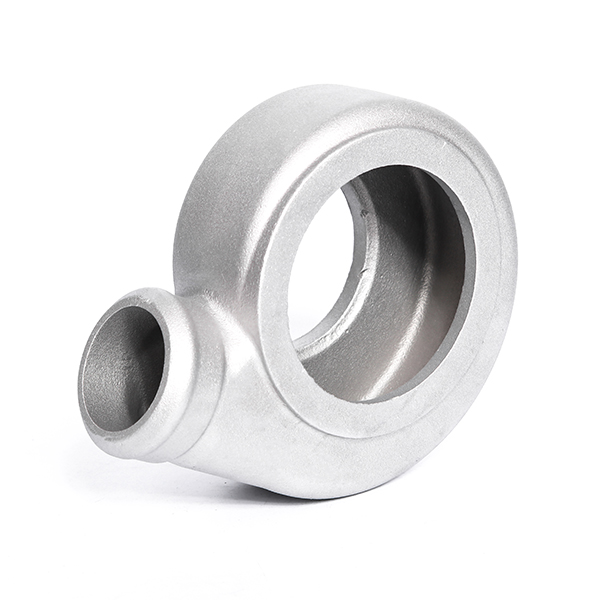
Throughout the entire manufacturing journey, stringent quality control measures are implemented to ensure the impeller adheres to international standards and client specifications. Non-destructive testing (NDT) techniques, including ultrasonic testing, radiographic testing, and magnetic particle inspection, are employed to detect any internal flaws or surface imperfections. Dimensional checks using CMM (Coordinate Measuring Machine) ensure precise adherence to design specifications. Adherence to standards such as ISO 9001 for quality management, ANSI B73.1 for centrifugal pumps, and API 610 for petroleum, petrochemical, and natural gas industries, ensures that each impeller meets the highest benchmarks for safety, reliability, and performance. For instance, an impeller destined for a petrochemical plant must comply with API 610, which specifies robust design and manufacturing criteria to handle volatile fluids safely. The typical lifespan of a well-manufactured impeller can range from 5 to 15 years, or even longer, depending on the operating conditions, fluid characteristics, and maintenance regimen. In industries like power generation and water treatment, where continuous operation is critical, the durability and extended lifespan of the impeller directly contribute to reducing total cost of ownership and enhancing operational uptime. This meticulous process ensures that the final product is not merely a component, but a high-precision engineered solution designed for longevity and peak performance in demanding industrial environments.
Key Technical Specifications and Performance Parameters of Impellers
Understanding the technical specifications of an impeller is crucial for engineers and procurement specialists to ensure optimal system performance and efficiency. Key parameters include hydraulic efficiency, which measures how effectively the impeller converts input power into fluid energy; Net Positive Suction Head Required (NPSHr), critical for preventing cavitation; flow rate (Q), indicating the volume of fluid moved per unit time; and head (H), representing the energy imparted to the fluid. Other vital specifications encompass the material composition, balancing grade, surface roughness, and mechanical seals compatibility. For example, a high-efficiency pumpe impeller designed for municipal water supply systems aims to minimize energy consumption, reducing operational expenses over its long service life. The design of the impeller blades, whether radial, mixed-flow, or axial, directly influences these parameters, impacting the pump's characteristic curve and its suitability for specific applications.
| Parameter | Description | Typical Range/Value | Impact on Performance |
|---|---|---|---|
| Material | Alloy composition for specific fluid and environmental conditions | 316L SS, Duplex SS, Cast Iron, Bronze, Hastelloy | Corrosion resistance, abrasion resistance, strength |
| Efficiency (Hydraulic) | Ratio of hydraulic power output to mechanical power input | 70% - 92% (for well-designed impellers) | Energy consumption, operational cost |
| NPSHr (Net Positive Suction Head Required) | Minimum absolute pressure required at the suction port to avoid cavitation | Varies greatly by design and speed (e.g., 2m - 10m) | Prevents cavitation, extends impeller life |
| Balancing Grade | Measure of residual unbalance in rotating components | ISO 1940-1: G2.5, G6.3 | Vibration reduction, bearing longevity, smooth operation |
| Surface Roughness | Texture of the impeller surface | Ra 3.2 µm (machined) to Ra 1.6 µm (polished) | Reduces friction losses, improves hydraulic efficiency |
| Shaft Diameter Compatibility | Internal bore diameter for shaft fitting | Customizable, e.g., 25mm to 150mm | Ensures secure fit and power transmission |
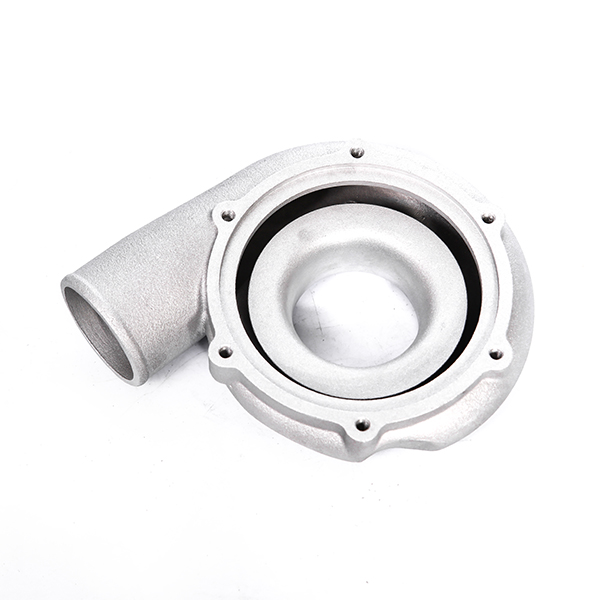
Advanced manufacturers leverage computational tools to model and predict the performance of their impellers under various operating conditions. This includes simulating fluid flow paths, pressure distribution, and potential cavitation zones. Such predictive capabilities allow for iterative design improvements before physical prototyping, significantly reducing development time and costs. Furthermore, the geometric characteristics of an impeller, such as the number of vanes, outlet angle, and eye diameter, are precisely engineered to achieve specific flow and head characteristics. For instance, open impellers are often chosen for handling fluids with suspended solids, while closed impellers are preferred for clean fluids due to their higher efficiency. The precision required in manufacturing these components is paramount. Even microscopic deviations from the design specifications can lead to significant reductions in efficiency, increased vibration, and premature wear. This commitment to precision engineering ensures that each impeller delivers consistent, reliable performance over its operational life, minimizing the need for frequent replacements or repairs. The right combination of design, material, and manufacturing precision yields an impeller that not only meets but exceeds the demanding requirements of industrial fluid handling systems.
Diverse Application Scenarios and Key Technical Advantages of Advanced Impellers
The versatility of the impeller extends across a myriad of critical industrial sectors, each presenting unique challenges and demanding tailored solutions. In the petrochemical and oil & gas industries, impellers are subjected to highly corrosive, abrasive, and high-temperature fluids, necessitating materials like super duplex stainless steel or nickel-based alloys to ensure durability and prevent costly downtime. Here, the advantage of an advanced impeller lies in its superior resistance to chemical degradation and erosion, which translates to extended service intervals and enhanced operational safety. For power generation plants, including nuclear, thermal, and hydropower, impellers are integral to cooling water systems and boiler feed pumps. Their primary advantage in this context is high hydraulic efficiency, which directly impacts the plant's overall energy consumption and operational costs. A well-designed impeller can significantly reduce the energy footprint of these large-scale operations.
In municipal water supply and wastewater treatment facilities, water pump impellers are vital for transferring vast volumes of water, often containing suspended solids or corrosive agents. The advantages here include exceptional anti-clogging capabilities, wear resistance, and the ability to maintain consistent flow rates even under varying fluid conditions. For instance, specialized open or semi-open impeller designs are employed to handle wastewater effectively without frequent blockages, ensuring continuous operation of essential public services. Similarly, in the mining industry, impellers face extremely abrasive slurries, requiring materials with high hardness and impact resistance. The key advantage of purpose-built mining impellers is their extended wear life, significantly reducing maintenance and replacement costs in highly aggressive environments. Furthermore, in the HVAC (Heating, Ventilation, and Air Conditioning) sector, smaller, precision-engineered impellers are used in chillers and cooling towers, where energy efficiency and quiet operation are paramount. These impellers provide precise flow control and minimal vibration, contributing to comfortable and energy-efficient building environments.
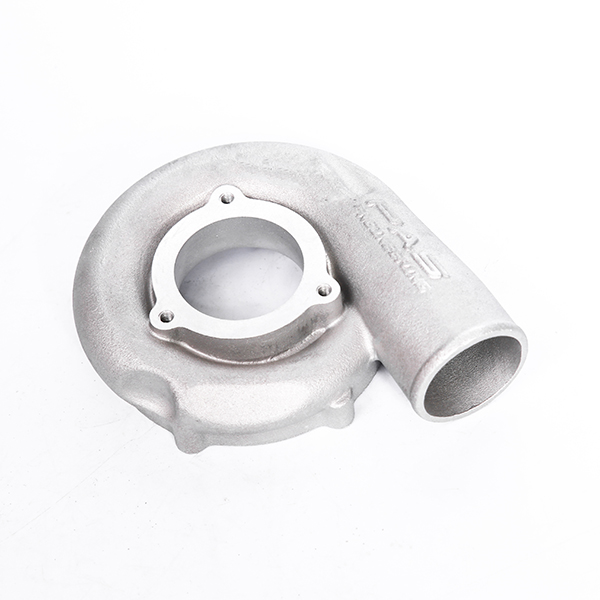
Across all these applications, the technical advantages of using high-quality impellers are multifaceted. Firstly, significant energy savings are realized through optimized hydraulic designs that reduce power consumption while maintaining desired flow and head. Secondly, superior corrosion and abrasion resistance extend the lifespan of the impeller, reducing the frequency of replacements and minimizing maintenance downtime, which is particularly critical in industries with continuous operations. Thirdly, enhanced reliability means fewer unexpected failures, leading to more predictable operational schedules and lower overall operational risks. Lastly, the ability to handle various fluid types, from clean water to highly viscous slurries or corrosive chemicals, demonstrates the adaptability and robust engineering of modern impellers. These combined advantages translate into a lower total cost of ownership, improved system performance, and increased operational safety, making the investment in high-quality impeller technology a strategic decision for any industrial enterprise. The continuous innovation in materials science and manufacturing processes further enhances these benefits, ensuring that impellers remain at the forefront of fluid handling technology.
Manufacturer Comparison and Tailored Impeller Solutions
When selecting an impeller manufacturer, B2B decision-makers must evaluate several critical factors beyond just price. Key considerations include the manufacturer's technical expertise, their adherence to stringent quality standards, their capacity for customization, and the robustness of their after-sales support. A reputable manufacturer possesses in-depth knowledge of fluid dynamics, metallurgy, and advanced manufacturing techniques, crucial for designing and producing high-performance impellers that meet specific operational demands. Furthermore, their track record of industry certifications, such as ISO 9001 for quality management and API standards for specific industry applications, provides an essential benchmark for reliability and trustworthiness. For instance, a manufacturer with extensive experience in producing impellers for pump systems in the chemical processing industry will have a proven methodology for material selection and surface treatment to combat specific corrosive agents, which differentiates them from generalist suppliers.
| Feature | Manufacturer A (Specialized) | Manufacturer B (Generalist) | Manufacturer C (Emerging) |
|---|---|---|---|
| Core Expertise | High-performance, complex geometries, extreme conditions | Standard impellers, general industrial use | Cost-effective, standard sizes |
| Material Range | Extensive, including exotic alloys (Hastelloy, Inconel, Super Duplex) | Common metals (Cast Iron, Bronze, Standard SS) | Limited to common alloys |
| Customization Capability | Full design, material, and performance customization | Limited modifications of standard designs | Minimal to none |
| Certifications | ISO 9001, API, ANSI, ASTM (material specific) | ISO 9001 | Working towards ISO 9001 |
| Lead Time (Typical) | 4-12 weeks (due to complexity/materials) | 2-6 weeks | 1-4 weeks |
| After-Sales Support | Comprehensive, technical consultation, field service | Standard warranty, basic support | Limited warranty, email support |
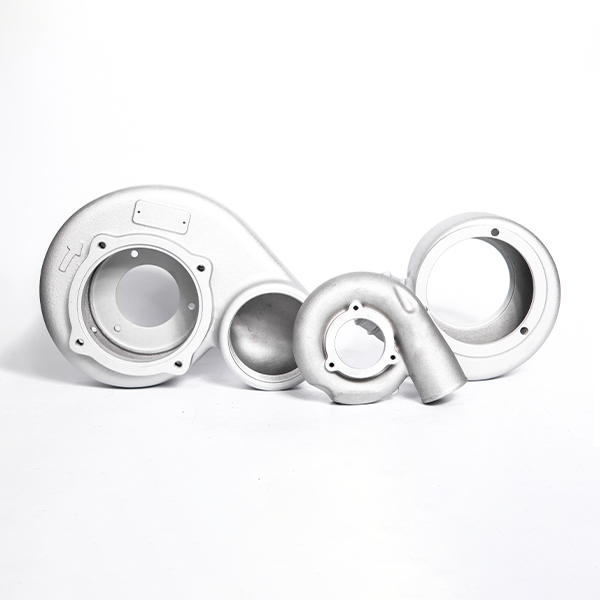
Customization is a significant differentiator for impeller manufacturers. While off-the-shelf impellers might suffice for general applications, many industrial processes have unique fluid characteristics, flow requirements, or space constraints that necessitate bespoke solutions. A manufacturer capable of providing tailor-made impeller designs can optimize hydraulic performance for a specific pump system, often resulting in substantial energy savings and extended component life. This might involve adjusting blade geometry for specific viscosity, designing for reduced NPSHr in challenging suction conditions, or incorporating specific wear-resistant coatings for abrasive slurries. For example, in a large-scale desalinization plant, a customized impeller made from super duplex stainless steel with a specialized coating could significantly improve efficiency and resist the corrosive effects of saltwater, far outperforming a generic alternative. The ability to collaborate closely with clients, from initial concept to final installation, on specific challenges like integrating the impeller with existing cap ends or optimizing its fit within a volute case, underscores a manufacturer's commitment to delivering truly effective solutions. This consultative approach ensures that the engineered impeller not only fits physically but also performs optimally within the intricate dynamics of the entire pumping system, providing a superior return on investment through enhanced efficiency and reduced maintenance.
Real-World Application Case Studies and Customer Success Stories
The true testament to a high-quality impeller lies in its performance in real-world industrial applications. Consider a major chemical processing plant experiencing frequent pump failures due to corrosion and cavitation, leading to substantial downtime and high maintenance costs. After an in-depth analysis of their operational parameters, our experts recommended replacing their standard cast iron impellers with custom-designed ones made from Hastelloy C-276, specifically engineered to resist the highly corrosive sulfuric acid and abrasive catalysts in their process stream. The new impellers, manufactured with precision CNC machining and subjected to rigorous non-destructive testing, demonstrated exceptional durability. Within six months, the plant reported a 70% reduction in pump-related breakdowns, extending maintenance cycles from quarterly to annually, and achieving an estimated 25% improvement in energy efficiency due to optimized hydraulic design. This led to significant operational savings and improved production consistency, showcasing the long-term value of investing in specialized impeller solutions.

Another compelling case study involves a large municipal wastewater treatment facility that struggled with constant clogging of their existing pumps due to fibrous materials and solids in the influent. This necessitated frequent manual clearing, leading to increased labor costs and operational inefficiencies. Collaborating with the facility's engineering team, we developed a bespoke semi-open water pump impeller with a wider vane passage and a specialized anti-clogging design. Fabricated from high-strength ductile iron with a hardened surface treatment, these impellers were designed to handle high solid concentrations without significant head loss or cavitation. The results were immediate and substantial: a 95% reduction in clogging incidents within the first year of operation, leading to a projected annual saving of over $150,000 in maintenance and labor costs. The improved flow dynamics also contributed to a 10% reduction in energy consumption for the pumping station. The client provided positive feedback, stating, "The new impellers have transformed our operations; we now have reliable, uninterrupted service, which is critical for public health infrastructure." These examples underscore the tangible benefits of partnering with an impeller manufacturer who offers not just products, but engineered solutions that address specific operational challenges, resulting in significant improvements in efficiency, reliability, and cost-effectiveness. The success stories demonstrate how a deep understanding of pump hydraulics and material science translates into real-world advantages for our industrial clients, validating our expertise and commitment to quality.
Ensuring Trust and Reliability: Quality Assurance, Support, and FAQ
Establishing trust and ensuring reliability are paramount in the B2B sector, especially for critical components like the impeller. Our commitment to quality is underpinned by rigorous adherence to international standards and certifications. We operate under an ISO 9001 certified quality management system, ensuring every stage from design to delivery meets the highest benchmarks. Furthermore, our products often comply with industry-specific standards such as ANSI B73.1 for centrifugal pumps and API 610 for petroleum and natural gas industries, signifying robust design and manufacturing for demanding applications. Material traceability is guaranteed, with comprehensive documentation detailing the origin, composition, and testing of every batch of raw material used in our impellers. Each impeller undergoes a series of stringent tests, including dimensional accuracy checks, dynamic balancing, and non-destructive testing (ultrasonic, radiographic, and dye penetrant inspection) to detect any internal or surface flaws. This meticulous inspection regime ensures that every impeller shipped is free from defects and performs as per specifications, reinforcing our reputation for unparalleled quality and dependability in the market.
Frequently Asked Questions (FAQ)
-
Q: What is the typical lead time for a customized impeller?
A: For custom-engineered impellers, the lead time typically ranges from 8 to 12 weeks, depending on the complexity of the design, the type of material, and the specific manufacturing processes required (e.g., specialized casting, unique CNC programming). We provide a detailed project timeline upon order confirmation to ensure full transparency.
-
Q: What kind of warranty do you offer on your impellers?
A: We offer a standard 12-month warranty from the date of installation or 18 months from the date of shipment, whichever comes first, covering defects in material and workmanship. Extended warranty options are available for specific projects or long-term supply agreements, reflecting our confidence in the durability of our impellers.
-
Q: How do you ensure the impeller is compatible with my existing pump system, especially the volute case and cap ends?
A: Our engineering team works closely with clients to gather detailed specifications of their existing pump system, including the volute case dimensions, cap ends design, shaft dimensions, and operational parameters. We utilize advanced CAD modeling and CFD simulations to ensure perfect mechanical fit and optimal hydraulic performance within your specific setup, preventing issues like cavitation or inefficient energy transfer. This rigorous approach ensures our impeller seamlessly integrates into your infrastructure.
-
Q: What kind of after-sales support do you provide for your impellers?
A: Our commitment extends beyond delivery. We offer comprehensive after-sales support, including technical consultations, troubleshooting assistance, and spare parts supply. Our experienced service engineers are available for on-site support or remote guidance to ensure your impellers continue to perform optimally throughout their lifespan.
Our streamlined delivery cycle is meticulously managed to ensure timely dispatch and minimal project delays. From order confirmation to final shipment, each step is tracked and communicated to the client, providing full visibility. This efficient logistics process, coupled with our robust warranty policy and proactive customer support, forms the cornerstone of our trust-building efforts with B2B clients. We believe that a superior product must be complemented by superior service, ensuring peace of mind and long-term operational excellence for our partners. Our dedication to providing comprehensive support underscores our position not just as a supplier, but as a reliable strategic partner in your fluid handling operations.
Conclusion: The Future of Impeller Technology in Industrial Efficiency
The impeller remains a cornerstone of industrial fluid dynamics, with its evolution directly impacting operational efficiency, energy consumption, and environmental sustainability across diverse sectors. From the initial design phase utilizing advanced CFD and FEA simulations to the precision manufacturing processes of casting, forging, and CNC machining, every step is geared towards producing a component that offers unparalleled performance and longevity. The careful selection of materials, whether standard alloys or exotic superalloys, ensures that each impeller is perfectly suited to withstand the specific rigors of its application environment, be it highly corrosive chemicals, abrasive slurries, or extreme temperatures. Our commitment to meeting rigorous international standards like ISO, ANSI, and API, along with comprehensive quality control measures, guarantees the reliability and safety of every impeller we deliver.
The continuous innovation in impeller technology, driven by the global imperative for energy efficiency and sustainable practices, points towards a future of smarter, more resilient fluid handling systems. Advances in material science, additive manufacturing, and integrated sensor technologies will further enhance the capabilities of these vital components, reducing downtime and optimizing energy usage for industrial operations worldwide. By choosing a manufacturer with deep expertise, a proven track record, and a strong commitment to customization and after-sales support, industries can ensure their fluid handling systems are equipped with impellers that not only meet today's demanding requirements but are also prepared for the challenges of tomorrow. This strategic investment in high-quality impeller technology is crucial for achieving superior operational performance, significant cost savings, and a competitive edge in an increasingly complex industrial landscape.
References
- Gülich, J. F. (2014). Centrifugal Pumps. Springer Berlin Heidelberg.
- Karassik, I. J., Messina, J. P., Cooper, P., & Heald, C. C. (2007). Pump Handbook. McGraw-Hill.
- Anderson, H. H. (1980). Centrifugal Pumps. Trade & Technical Press.
- Chaudhry, M. H. (2008). Applied Hydraulic Transients. Van Nostrand Reinhold.
- Mohan, T. S. R. (2004). Corrosion Prevention and Control. Tata McGraw-Hill Publishing.
-
Superior Aluminum Castings in Automotive Engine PartsNewsAug.22,2025
-
Common Materials Used in Fan Housing ManufacturingNewsAug.22,2025
-
Symptoms of a Stuck Automobile Water Pump ImpellerNewsAug.22,2025
-
The Importance of Valve Castings in Water TreatmentNewsAug.22,2025
-
Welding Techniques for End Cap Stainless Steel FittingsNewsAug.22,2025
-
How to Install a Water Pump Connector ProperlyNewsAug.22,2025











